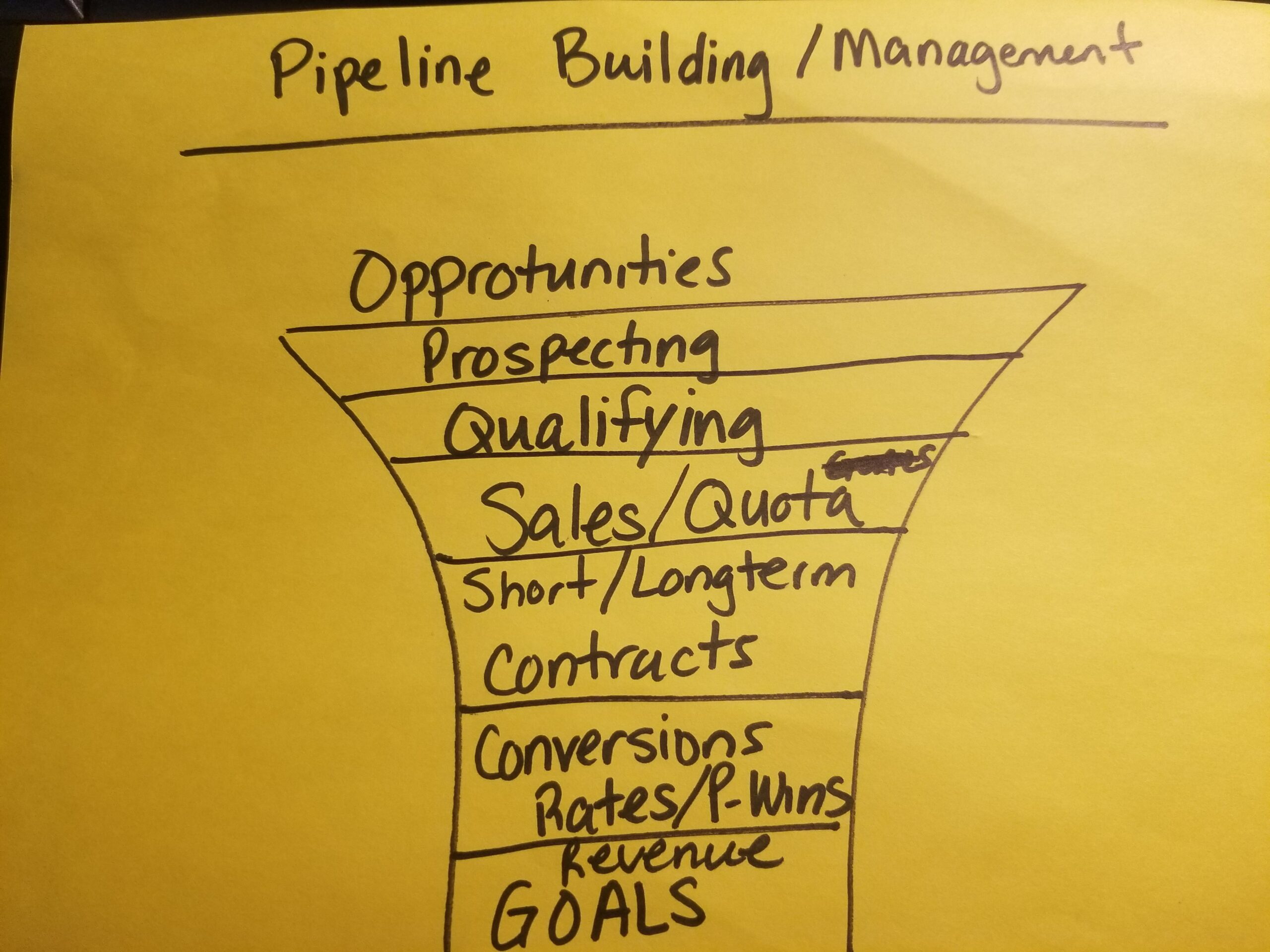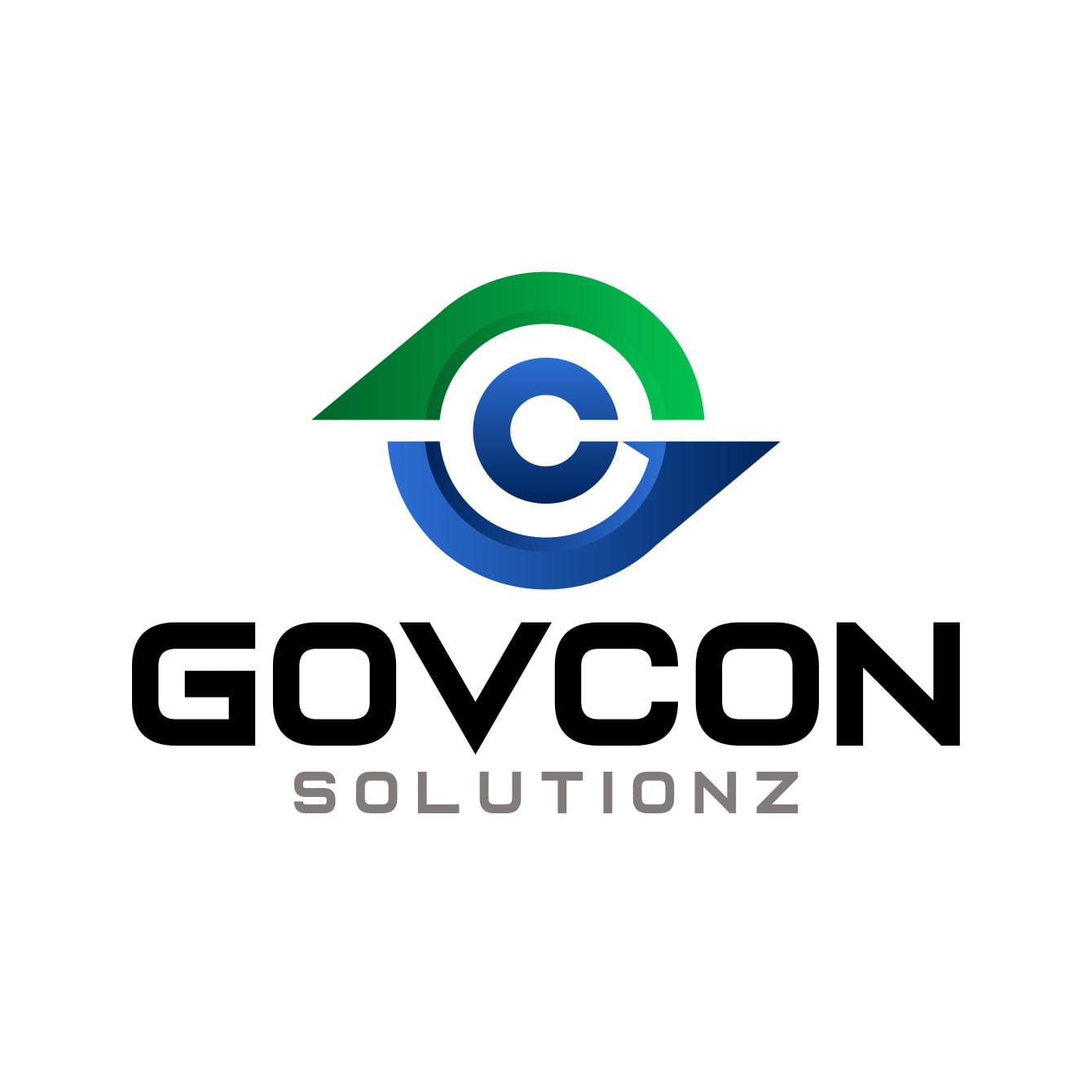What is a Sales Pipeline?
How do you fill it with vetted opprotunities?
Why do you need to have a sales pipeline?
How does a sales pipeline help your business?
Why should you understand the sales cycle/acquisition process of thegovernment?
Why are your strategic partnerships/relationships important to your pipeline?
How to improve your win rate?
What is capture management?
Pipeline management refers to the systematic approach to tracking, evaluating, and pursuing potential contract opportunities. It involves creating and managing a “pipeline” of opportunities that move through stages, from identification to capture planning, proposal development, submission, and finally, contract award.
Develop a Pipeline of Potential Opprotunities
Pipeline Management is a business development strategy that allows you to see/catalog your potential revenue for the year or quarterly. Building a successful federal sales pipeline is a combination of market research, relationship-building, compliance, and disciplined on-going pursuit of opportunities. By investing in a long-term strategy that includes understanding the federal procurement landscape, leveraging relationships, and continuously improving your processes, you can position your company for sustained growth in the federal contracting market.
In the federal market, the sales pipeline requires careful management, relationship-building, and a clear understanding of the federal procurement cycle, which often involves long timelines and extensive compliance requirements.
Overall, a sales pipeline is not only important but essential for efficiently managing the complexities of federal contracting, improving decision-making, and ultimately increasing the chances of winning contracts. A sales pipeline is crucial for a federal contractor doing business with the federal government.
Sales Cycles Can Be Long.. Be Pro-Active!
Federal procurement processes are lengthy and complex. They can take months or even years from opportunity identification to contract award. A structured sales pipeline helps contractors manage these long cycles by tracking each opportunity’s progress and ensuring no steps are missed. Federal sales cycles are typically long due to the detailed bid and proposal process.
Continuously filling the pipeline helps ensure there’s a regular flow of potential revenue, even with the lengthy decision-making times.
Tracking Opprotunities
The federal government offers contracts through a variety of vehicles, including open solicitations, requests for proposals (RFPs), and task orders. A well-maintained pipeline allows contractors to track multiple opportunities simultaneously and understand where they are in the acquisition process. (RFI, RFQ, RFP)
Resource Allocation/Time Management
Bidding on federal contracts is resource-intensive. A clear pipeline helps contractors allocate resources—both time and personnel—efficiently, ensuring that efforts are focused on the most promising opportunities. This is especially important when balancing work on proposals with ongoing project execution.
Success in federal contracting often relies on building relationships with key government stakeholders and decision-makers. A sales pipeline helps keep track of engagement with various agencies, prime contractors, or partners, ensuring that communication and outreach are consistent and well-timed.
Improves Your Win Rate
By systematically tracking the status of each opportunity, contractors can refine their bid strategy, identify weaknesses in past proposals, and adjust their approach to increase their chances of winning future contracts.
Competitive Market: The federal contracting landscape is competitive, with numerous contractors bidding for the same opportunities. Continuosly pursuing leads gives a contractor a better chance of securing work and maintaining market relevance.
Better Bid Management: Federal procurements often come with specific requirements and strict timelines. By qualifying opportunities upfront, you can better manage timelines and avoid last-minute, low-quality bids that might hurt your reputation.
Higher Win Probability: Focusing on opportunities where your business has the required qualifications, past performance, and capacity improves your probability of success. You’re more likely to win contracts that align well with your expertise and resources, increasing revenue.
Sales pipeline consists of several stages, each designed to manage the unique requirements and extended timelines of government contracting.
Lead Generation (Sales)
Identifying Opportunities: Using tools like SAM.gov, GovWin, or FPDS, federal contractors look for pre-solicitation notices, RFPs (Requests for Proposal), RFIs (Requests for Information), or other early indicators of upcoming opportunities.
Targeting Agencies: This involves pinpointing agencies with budgets, needs, or initiatives aligning with your capabilities.
Relationship Management: Maintaining a continuous pipeline of projects keeps contractors visible within federal agencies, which strengthens relationships and improves the chances of winning future contracts.
Capture Management (Qualifying Leads)
Capture Planning: In this stage, the company develops a capture strategy that includes understanding the customer’s needs, identifying key stakeholders, evaluating competitors, and determining how to position the company’s offerings. This stage may involve teaming up with other contractors or subcontractors and preparing marketing or technical materials to engage with the agency.
Qualifying Leads: Assessing whether an opportunity fits your company’s strengths, capabilities, and contracting vehicles.
Research and Intelligence Gathering: Learning more about the agency’s goals, priorities, and procurement history to gauge the likelihood of winning.
Capture Management: Developing a capture plan that involves building relationships with key stakeholders within the agency, crafting a value proposition, and positioning against competitors.
Engagement and Networking: Attending industry events, agency open houses, and networking to gather intelligence and establish relationships with agency contacts.
One of the most important things you can do for your business, is to FILL YOUR PIPELINE with carefully vetted contract opprtunities.

